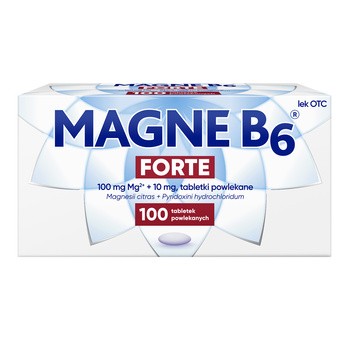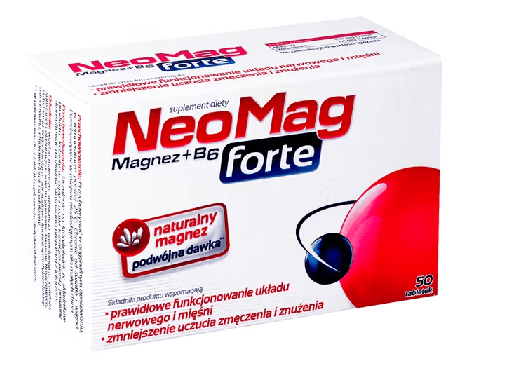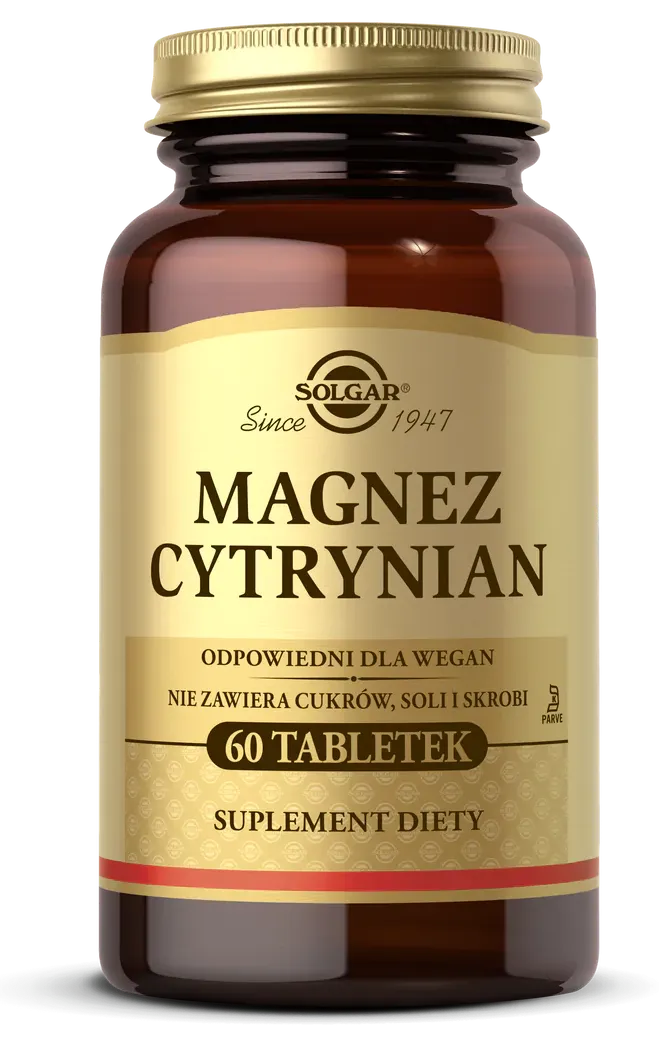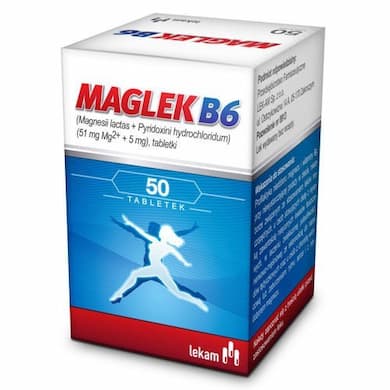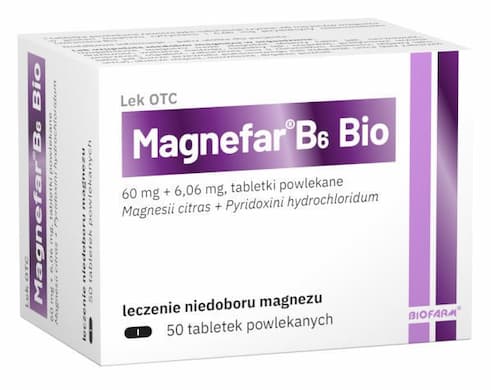Magnesium - properties, deficiency symptoms, best sources
Magnesium - check properties, deficiency symptoms, sources in food, recommended daily intake


Learn more about our editorial process
.

Learn more about our editorial process
.

Learn more about our editorial process
.

Learn more about our editorial process
.
Why you can trust us
Articles on Natu.Care are written based on scientific research, data from government websites and other reliable sources. The texts are written in cooperation with doctors, nutritionists and other health and beauty experts. Articles are reviewed before publication and during significant updates.
.Learn more about our editorial process
.Information about advertisements
Content on Natu.Care may contain links to products from the sale of which we may receive a commission. When creating content, we adhere to high editorial standards and take care to be objective about the products discussed. The presence of affiliate links is not dictated by our partners, and we select the products we review ourselves completely independently.
.Learn more about our terms and Conditions
.Magnesium is associated with the normal function of muscles and the nervous system. When we have cramps or our eyelids twitch, our intuition tells us we are deficient in it. We know to eat dark chocolate to replenish it in our diet. Can magnesium surprise us with anything else? Yes!
Find out what else magnesium is responsible for in the body, what other symptoms of magnesium deficiency there are and check out recipes for magnesium meals. I have written about magnesium without secrets together with experts - Witold Tomaszewski, MD, PhD, and clinical nutritionist Marta Kaczorek.
Magnesium without secrets.
Description of contents:
.- Properties of magnesium .
- Magnesium deficiency - symptoms .
- Magnesium excess - symptoms .
- Sources of magnesium. In which products is magnesium present .
- Daily magnesium requirements .
- Which magnesium is best absorbed .
- Magnesium-filled meals - recipes from a nutritionist .
- Summary .
- FAQ - frequently asked questions

Sprawdź, co połączenie magnezu i witaminy B6 może zrobić dla Twojego zdrowia!
Natu.Care Magnez Premium + Witamina B6
Wesprzyj prawidłowe funkcjonowanie układu nerwowego, krwionośnego i mięśniowego dzięki synergicznemu działaniu magnezu i witaminy B6. Odkryj pełnię korzyści dla Twojego zdrowia każdego dnia!
Sprawdź cenę
Magnez Premium przyjmuję już od 2 miesięcy i naprawdę czuję się znacznie lepiej. Mam więcej energii, przestałam mieć skurcze i nie denerwuję się już tak szybko, co w przypadku bycia mamą – bywa wyzwaniem!@DianaW.
See also:
.
Properties of magnesium
.
Magnesium, just after potassium, is the most abundant cation in the body , influencing the action of over 600 enzymes ! This means it is involved in a huge number of processes in your body.
One of its primary roles is to assist biochemical reactionsand. Magnesium is involved in, among other things:
.
- converting food into energy, .
- the formation of new proteins from amino acids, .
- in the formation and repair of DNA and RNA, .
- in support of muscle contraction and diastole, .
- regulation of neurotransmitters, .
What does magnesium help with?
- Promotes the proper functioning of the systems: nervous , circulatory and muscular .
- Facilitates calcium absorption into bone cells .
- Strengthens the skeletal system and prevents osteoporosis .
- May alleviate symptoms of depression and affect mental well-being .
- May affect better quality of sleep .
- Reduces the severity and occurrence of migraines .
- Reduces blood pressure . .
- Regulates blood glucose levels .
- Reduces inflammation in the body .
- Participates in insulin metabolism .
- May relieve symptoms of premenstrual syndrome .
- Has the potential to improve endurance, fitness and strength .
Magnesium is the fourth most abundant mineral in the body. About 50% of the total magnesium in the body is found in the bones. The other half is mainly found inside the cells of the body's tissues and organs. Only 1% of magnesium is found in the blood.
Natu.Care Premium Magnesium + Vitamin B6
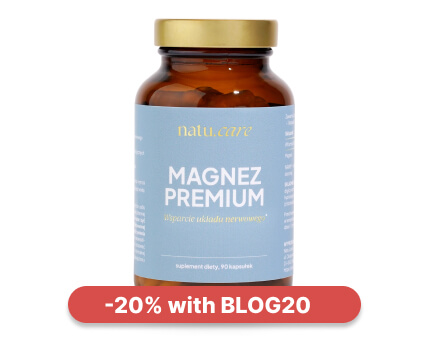
- Magnesium content per day: 305 mg
- Additional active ingredients: Vitamin B6 (2.1 mg)
- Form: capsules
- Serving size: 3 capsules per day
- Sufficient for: 30 days
Product description
The Premium Magnesium + Vitamin B6 dietary supplement is a comprehensive product that combines three organic forms of magnesium (citrate, malate, and diglycinate) and vitamin B6 in highly absorbable forms.
Magnesium is an essential mineral without which our bodies cannot function properly. It supports the immune, nervous, and muscular systems, maintains electrolyte balance, and is involved in cell division and the regulation of mental functions.
Research shows that magnesium supplementation is even more effective when accompanied by vitamin B6, which is included in our product. Vitamin B6 is responsible for the proper functioning of the nervous and immune systems, as well as the proper functioning of the heart.
If you want to safely get rid of feelings of fatigue, concentration problems, hair loss, muscle cramps, trembling, or irritability, reach for Premium Magnesium from Natu.Care, tested by the independent, certified laboratory J.S. Hamilton Poland.
Pros and cons
Pros
- Supports the proper functioning of the nervous and immune systems.
- Reduces feelings of fatigue and tiredness.
- Maintains proper psychological functions.
- The purity of the ingredients (free from anti-caking agents, artificial fillers, and additives such as titanium dioxide, microcrystalline cellulose, talc, magnesium stearate, and silicon dioxide) has been confirmed by laboratory tests.
- High absorption of ingredients.
- Soft capsules that are easy to swallow.
- Suitable for vegetarians and vegans.
Cons
- None.
Additional information
Take with a meal, 3 capsules per day.
The capsules should be taken with at least 250 ml of water.
If you have trouble sleeping, it is advisable to take 1 capsule in the morning and 2 capsules in the evening, no later than 4 hours before bedtime.
Avoid combining with products high in calcium (milk, yogurt, cheese), as this may negatively affect magnesium absorption.
Pregnant and breastfeeding women should consult a doctor before starting supplementation.
User review
I’m very impressed with the speed of delivery. The product itself is of high quality and absorbs well. After two weeks of supplementation, I’ve noticed a significant improvement in muscle recovery, especially during periods of intense training. I highly recommend it!
Magne B6 Forte 100 mg + 10 mg
Product description
Magne B6® Forte is a medicine in the form of film-coated tablets for use in magnesium deficiency. The medicinal product contains magnesium ions and pyridoxine hydrochloride (vitamin B6) and is suitable for use in adults and children over 6 years of age. Magne B6® Forte is not a dietary supplement, but a medicine with a high dose of magnesium per tablet in the form of highly bioavailable organic magnesium citrate salt.
Pros and cons
Magne B6® Forte is a medicine in the form of film-coated tablets for use in magnesium deficiency. The medicinal product contains magnesium ions and pyridoxine hydrochloride (vitamin B6) and is suitable for use in adults and children over 6 years of age. Magne B6® Forte is not a dietary supplement, but a medicine with a high dose of magnesium per tablet in the form of highly bioavailable organic magnesium citrate salt.
Additional information
Magne B6® Forte is a medicine in the form of film-coated tablets for use in magnesium deficiency. The medicinal product contains magnesium ions and pyridoxine hydrochloride (vitamin B6) and is suitable for use in adults and children over 6 years of age. Magne B6® Forte is not a dietary supplement, but a medicine with a high dose of magnesium per tablet in the form of highly bioavailable organic magnesium citrate salt.
Expert opinion
NeoMag Forte
Product description
Magnesium and vitamin B6 contribute to the maintenance of normal energy metabolism, the reduction of feelings of fatigue and tiredness, help in the normal functioning of the nervous system and in the maintenance of normal psychological functions. Magnesium helps in the correct functioning of muscles and in maintaining electrolyte balance. In addition, magnesium plays a role in the process of cell division and helps in the correct synthesis of protein. Vitamin B6 contributes to the maintenance of normal protein and glycogen metabolism. In addition, the vitamin helps in the normal production of red blood cells and the normal functioning of the immune system. It also contributes rós to the regulation of hormonal activity.
Pros and cons
Magnesium and vitamin B6 contribute to the maintenance of normal energy metabolism, the reduction of feelings of fatigue and tiredness, help in the normal functioning of the nervous system and in the maintenance of normal psychological functions. Magnesium helps in the correct functioning of muscles and in maintaining electrolyte balance. In addition, magnesium plays a role in the process of cell division and helps in the correct synthesis of protein. Vitamin B6 contributes to the maintenance of normal protein and glycogen metabolism. In addition, the vitamin helps in the normal production of red blood cells and the normal functioning of the immune system. It also contributes rós to the regulation of hormonal activity.
Additional information
Magnesium and vitamin B6 contribute to the maintenance of normal energy metabolism, the reduction of feelings of fatigue and tiredness, help in the normal functioning of the nervous system and in the maintenance of normal psychological functions. Magnesium helps in the correct functioning of muscles and in maintaining electrolyte balance. In addition, magnesium plays a role in the process of cell division and helps in the correct synthesis of protein. Vitamin B6 contributes to the maintenance of normal protein and glycogen metabolism. In addition, the vitamin helps in the normal production of red blood cells and the normal functioning of the immune system. It also contributes rós to the regulation of hormonal activity.
Expert opinion
Product description
Magnesium citrate supports the health of the nervous system, immune system and psychological function. It helps to combat excessive stress and regulates muscle tension by preventing cramps. Recommended during periods of chronic fatigue, stress and high physical activity.
Pros and cons
Magnesium citrate supports the health of the nervous system, immune system and psychological function. It helps to combat excessive stress and regulates muscle tension by preventing cramps. Recommended during periods of chronic fatigue, stress and high physical activity.
Additional information
Magnesium citrate supports the health of the nervous system, immune system and psychological function. It helps to combat excessive stress and regulates muscle tension by preventing cramps. Recommended during periods of chronic fatigue, stress and high physical activity.
User review
Magnesium citrate supports the health of the nervous system, immune system and psychological function. It helps to combat excessive stress and regulates muscle tension by preventing cramps. Recommended during periods of chronic fatigue, stress and high physical activity.
Product description
Magnesium lactate drug with vitamin B6, which is well absorbed and supplements the deficiency.
Additional information
One tablet contains 51 mg of ions of well-absorbed magnesium lactate and 5 mg of vitamin B6, which facilitates its absorption by the body. The drug does not contain sucrose or lactose. The tablet is not coated, so it is advisable to divide it in half before swallowing.
When buying this product, make sure you get Maglek, not MagleQ B6. The latter is a dietary supplement.

Ilona Krzak master of pharmacy
Product description
An effective combination of magnesium and vitamin B6, which supplements the deficiency of this element.
Additional information
One tablet contains 60 mg of magnesium ions in the form of well-absorbed citrate with vitamin B6, which facilitates its absorption. The tablet is coated and has a dividing line, which makes it easier to crush it when one has trouble swallowing. The drug does not contain sucrose or lactose.
Check out other articles about minerals and learn about their interesting properties!
Magnesium deficiency - symptoms
.
Your eyelids have been twitching for a few days, you've been accompanied by irritability, and maybe even cramps in your calves. I'm deficient in magnesium -you think. Find out how else too little magnesium in the body can manifest itself.
Symptoms of magnesium deficiency includeand:
.
- muscle tremors and cramps, .
- muscle aches and weakness, .
- tingling and sensory disturbances (e.g. facial), .
- feeling of fatigue, .
- nausea, vomiting, loss of appetite, .
- arrhythmia, uneven heartbeat, .
- irritability, nervousness, worsening of mood, .
The above symptoms may or may not indicate a magnesium deficiency in the body. Eyelid tremor, often reported and searched for on the internet, may also indicate a deficiency of potassium, B vitamins or calcium. If in doubt, consult your doctor or pharmacist..
 .
.
Dr. n. med. Witold Tomaszewski
.Who is at risk of magnesium deficiency in the body?
.
Check if you are at risk, or if your loved one may be at risk of deficiency of this valuable element.
Factors contributing to magnesium deficiencyand:
- Nutrition: starvation, anorexia, bulimia or frequent vomiting.
- Diseases of the digestive system: diagnosed digestive or absorption disorders (e.g. Crohn's disease, coeliac disease, inflammatory bowel disease).
- Diarrhoea: electrolyte imbalances. .
- Alcohol abuse: excessive alcohol consumption can lead to electrolyte or nutrient imbalances, and cause - more than usual - magnesium release.
- Breastfeeding or pregnancy: both factors increase magnesium requirements. .
- Age: over time, magnesium absorption becomes impaired, putting older people at greater risk of magnesium deficiency.
- Age: over time, magnesium absorption becomes impaired, putting older people at greater risk of magnesium deficiency.
- Diabetes: the body may excrete more magnesium in people with type 2 diabetes, insulin resistance or high serum glucose levels.
- Taking certain medications: people taking certain antifungal drugs, diuretics (diuretics), proton pump inhibitors are at greater risk of magnesium deficiency.
- High physical activity: people who regularly perform workouts, especially endurance workouts, have an increased need for magnesium. .
- Stress: prolonged mental tension can increase the loss of magnesium from the body, and in turn magnesium deficiency can increase the body's susceptibility to stress, causing a vicious cycle.
How to find out if I have a magnesium deficiency?
.
Dr Witold Tomaszewski, M.D., suggests how to diagnose magnesium deficiency.
Magnesium deficiency can be diagnosed.
Measuring serum magnesium concentration is a basic test that is reimbursed by the National Health Fund if you receive a referral from your doctor. It is a good starting point for the diagnosis of magnesium deficiency.
Serum magnesium concentration test.
The serum magnesium concentration test may not, however, be sufficient to diagnose a deficiency. A result with a normal serum magnesium concentration does not imply the absence of a deficiency.
A broader diagnostic picture may be given by:
.
- a study of daily magnesium excretion, .
- an oral or intravenous magnesium loading test, .
- magnesium concentration in erythrocytes, .
- muscle biopsy, .
- concentration of magnesium in bones and hair, .
- determination of the ratio of ionised to total magnesium, .
Magnesium excess - symptoms
.
Hypermagnesaemia (excess magnesium) is a relatively rare occurrence. It is most likely to occur in people with kidney disease and in people who abuse magnesium supplements.
Symptoms of magnesium excessand:
- nausea, vomiting, .
- diarrhoea, .
- insomnia, .
- low blood pressure, .
- heart arrest, .
- stagnation of urine, .
- difficulty breathing, .
When there is an excess of magnesium, magnesium supplementation should be stopped in the first place. The doctor may give intravenous calcium gluconate or diuretics to reverse the effects of hypermagnesaemia. Dialysis is sometimes necessary to flush magnesium out of the body.
Sources of magnesium. What products are there magnesium in?
.
The absorption of magnesium from the diet is approximately 50%and. It is present in a wide variety of foods - check out what you like from the list below and eat something rich in magnesium today (but not dark chocolate alone!).
Best sources of magnesium from foodand:
- Wheat bran - 611 mg/100 g, .
- pumpkin seeds - 550 mg/100 g, .
- cacao - 499 mg/100 g, .
- chia seeds (chia seeds) - 330 mg/100 g, .
- monds - 281 mg/100 g, .
- barley groats - 270 mg/100 g, .
- wheat groats - 231 mg/100 g, .
- peanuts - 168 mg/100 g, .
- walnuts - 158 mg/100 g, .
- oatmeal - 130 mg/100 g, .
- bitter chocolate (min. 70%) - 132/100 g, .
- fresh spinach - 93 mg/100 g, .
- dried figs - 67 mg/100 g, .
- edamame (fresh soybeans) - 61 mg/100 g, .
- dried dates - 47 mg/100 g, .
- raisins - 30 mg/100 g, .
- avocado - 29 mg/100 g, .
- banana - 27 mg/100 g, .
The source of magnesium is also hard water. It also contains large amounts of other important minerals, such as calcium. Polish waterworks supply medium-hard water to our taps, although current research suggests that some cities have very soft tap water..
 .
.
Marta Kaczorek Clinical nutritionist
.
When I read this list myself, some cool recipes for magnesium-rich meals were born in my head. Martha and I have left you with some culinary inspiration at the end of the article.
Daily magnesium requirements
.
Nutrition standards for our country indicate the following daily magnesium requirementsand:
.
.
|
Demographic group . |
Magnesium (mg/day) . |
|
|
Infants . |
0-6 months |
30 (AI)* |
|
7-11 months |
70 (AI) . |
|
|
Children |
1-3 years |
80 |
|
4-9 years |
130 |
|
|
Boys |
10-12 years |
240 |
|
16-18 years |
410 |
|
|
Girls |
10-12 years |
240 |
|
16-18 years |
360 |
|
|
Males |
19-30 years old |
400 |
|
31+ |
420 |
|
|
Women |
19-30 years old |
310 |
|
31+ |
320 |
|
|
Pregnant women . |
Under 19 years of age . |
400 |
|
Above 19 years of age |
360 |
|
|
Breastfeeding women . |
Under 19 years of age . |
360 |
|
Above 19 years of age |
320 |
|
Recommendations shown for infants at AI (Adequate Intake) level and for the rest of the population RDA** (Recommended Dietary Allowance).
*AI (Adequate Intake)and - sufficient intake is a dietary recommendation used when there is insufficient data to calculate average requirements.
**RDA (Recommended Daily Allowance) is an estimate of the amount of vitamins and minerals sufficient to meet the needs of population groups.
Which magnesium is best absorbed?
.
You have certainly heard of the bioavailability of a substance. The bioavailability determines the extent to which nutrients from food or supplementation will convert to a form that allows them to be absorbed by the body.
Organic salts.
Organic salts versus inorganic salts
.
Our body assimilates organic salts better than inorganic salts. When looking for the best magnesium, check what form it is in in a particular medicine or supplement.
- Organic saltsand: magnesium citrate, magnesium lactate, magnesium aspartate, magnesium malate.
- Inorganic saltsand: magnesium oxide, magnesium carbonate, magnesium sulphate. .
Note whether the product contains B vitamins, especially vitamin B6, which helps with magnesium absorption.
Looking for the best magnesium? Check out our ranking of the best magnesium compiled with a pharmacist.
Magnesium chelate - power player or marketing gimmick?
.
For several years now, it has been possible to buy dietary supplements with magnesium in chelate form, specifically magnesium diglycinateand. Chelates are substances that consist of 2 amino acid molecules and 1 molecule of a particular mineraland. I have reviewed several scientific studies that have investigated, among other things, the bioavailability of this formand.
It cannot be concluded that this form of magnesium is the best absorbed. There is no evidence for this as evident as with citrate, for example. We need to wait for more reliable studies to see exactly how bioavailable chelate is.
Magnesium oxide - a pathway of shame
.
Magnesium oxide is very poorly absorbedand. This form of the element has the weakest bioavailability - it is only 4% . Manufacturers use it in their products because it is cheap and light, so it can be put into a single tablet in a large dose. Unfortunately, the content does not translate into bioavailability.
Don't be fooled by marketing slogans about 400 mg magnesium in one tablet. You won't assimilate that much from a magnesium oxide product. Buy good magnesium in the form of a medicine and use the better forms of this element, such as citrate or lactate.
You already know how to consciously choose magnesium for supplementation. Remember, too, that it is best provided in a varied and nutritious diet.
Foods full of magnesium - recipes from a nutritionist
.
No idea how to cleverly incorporate magnesium into your diet? Check out the inspiration from clinical nutritionist Marta Kaczorek. Simple and tasty - what will you make first? I tested out the recipe for a millet soup - insane and filling!
For the sweet: strawberry cacao lamb banana
.
Ingredients:
- milk groats - 50 g (half a bag), .
- milk - 250 g (1 cup), .
- coconut shavings - 6 g (1 tbsp), .
- good quality cocoa* - 10 g (1 tbsp), .
- strawberries (or other favourite fruit) - 150 g (approx. 1 cup), .
- favourite nuts (preferably almonds or walnuts) - 10 g (1 tbsp), .
- sweetener - as desired, .
*good quality cocoa is natural bitter cocoa, raw, with no added sugar
.
Rinse the millet groats with cold water and cook them in the milk to absorb all the liquid. Towards the end of cooking, add the cocoa, sweetener and mix well. Transfer the mixture into a bowl. You can either add the fruit, chips and nuts to the porridge straight away, or you can blitz half of the strawberries into a mousse and only top with the other toppings.
Dry: green shakshuka
.
Ingredients:
.
- hen's eggs - 150 g (3 M eggs), .
- whole grain bread - 70 g (2 slices), .
- cucina - 50 g (⅛ of a large courgette), .
- canola oil - 10 g (1 tbsp), .
- apricot - 50 g (⅓ of a medium pepper), .
- leek - 30 g (⅕ of a medium leek), .
- spinach - 50 g (2 large handfuls), .
- Salt, garlic powder, pepper - as desired, .
Heat the oil in a frying pan. Slice the leek and finely dice the peppers and courgette. Add the vegetables to the pan. Fry over a medium heat until the vegetables are soft (about 15 minutes). Season to taste and stir. Add the spinach to the pan. Make indentations in the green mixture and crack the eggs into them. Reduce the heat, cover the pan with a lid and simmer until the eggs are set. (About 5 minutes).
.
A quick and rich meal!
.
Ingredients:
.
- favourite yoghurt, preferably high protein (skyr, kvarg) - 1 packet, .
- mountain oat flakes - 40 g (4 tbsp), .
- wheat bran - 5 g (2 tbsp), .
- nuts (preferably almonds or walnuts) - 10 g (1 tbsp), .
- dried fruit (e.g. dates, figs, sultanas) - 5 pieces, .
- bitter chocolate min. 70% - 3 cubes, .
Mix the bran and oatmeal with the yoghurt/skyr/kvarg. You can add water/milk if you prefer a less thick paste. Add the nuts. You can grate the chocolate cubes or, if you don't have time, break them into pieces. Leave the mixture in the fridge overnight to swell and become pleasantly creamy.
See also:
.
- Thyroid tests [which ones to do + standards + results]
- Blood tests [how often to perform + how to prepare]
- How to quickly supplement vitamin B12 deficiency?
- The liver [symptoms + how to care for it and what to avoid] .
- Fatty (greasy) liver [what it is + causes + symptoms] .
- How to take care of your mental health during a period of depressed mood]
Summary
.
I've collected the most frequently asked questions for you regarding magnesium. Find out about this magnesium leaching and what a hangover has to do with it. And if you're reading this article while taking a magnesium bath, then... I've got bad news for you.
FAQ
.How does magnesium deficiency manifest itself?
.The most common symptoms of magnesium deficiency are: muscle tremors and cramps, muscle pain and weakness, tingling and sensory disturbances, feeling tired, nausea, vomiting, loss of appetite, arrhythmia, uneven heartbeat, irritability, nervousness, deterioration of mood, sleep problems.
Remember that these symptoms may be indicative of a deficiency in other vitamins, minerals or other nutrients. If symptoms are prolonged or exacerbated, see an internist.
What happens when you take magnesium every day?
.Magnesium taken daily supports the proper functioning of the nervous, muscular, circulatory systems and strengthens the skeletal system. It reduces inflammation in the body, can promote sleep and improve mood. It also takes an active part in insulin metabolism.
What is the most magnesium in?
.The following contain the most magnesium: pumpkin seeds, wheat bran, cocoa, chia seeds, almonds, peanuts, walnuts, dried dates, dried figs, barley and buckwheat groats, oatmeal, dark chocolate. Find room in your diet for these foods, which are also rich in other nutrients.
Does coffee leach magnesium?
.No, coffee does not leach magnesium. Coffee contains magnesium at 3 mg/100 g. Drinking coffee has a diuretic effect, so it affects the accelerated excretion of magnesium. However, if you drink coffee in moderation, hydrate properly and have a varied diet, do not worry about magnesium leaching.
Can magnesium and potassium be taken together?
.Yes, you can consume magnesium and potassium together. These two minerals have complementary effects - supporting the nervous, cardiovascular and skeletal systems. Magnesium increases the absorption of potassium from the digestive tract. Want to know more about potassium? Read about the role of potassium in the body.
What leaches magnesium?
.Magnesium is flushed out with frequent consumption of diuretic fluids (coffee, tea, alcohol, herbs). Large amounts of calcium, phosphorus, phytates (in legumes), oxalates (e.g. in spinach) in the diet reduce magnesium absorption.
Does alcohol leach magnesium?
.Yes, alcohol leaches magnesium. It acts as a diuretic, flushing vitamins and minerals out of the body. Alcohol abuse impairs magnesium absorption and puts us at risk of magnesium deficiency, as well as other important micronutrients.
Is magnesium good for hangovers?
.Yes, magnesium is good for a hangover when you are dehydrated and feeling unwell. It is best taken in the presence of other vitamins and electrolytes that may have been flushed out by drinking alcohol. Remember that alcohol negatively affects your health.
Is magnesium absorbed through the skin?
.No, magnesium is not absorbed through the skin and magnesium baths do not work. The magnesium bath salts sold are a marketing ploy. There are no scientific studies to prove that magnesium is absorbed through the skin. Supplement magnesium with a nutritious diet and good magnesium supplements.
Does magnesium help with cramps?
.Yes, magnesium helps with cramps, especially if we have them due to a deficiency of this element. If you are plagued by cramps, try to implement foods rich in magnesium and potassium into your diet and consider supplementation, preferably after consulting your doctor or pharmacist.
Can you overdose on magnesium?
.Yes, it is possible to overdose on magnesium and this condition is called hypermagnesaemia. It happens rarely and usually affects people who overuse magnesium supplementation or those with kidney disease. Do not exceed the recommended daily doses and consult your doctor about supplementation if in doubt.
Does magnesium taken in the evening stimulate you?
.No, magnesium taken in the evening does not stimulate and, on the contrary, can positively affect the quality of our sleep. If you're looking for ways to improve the quality of your sleep, read our article on melatonin for sleep and check out the Sleep Well supplement for good sleep.
When is the best time to take magnesium?
.Magnesium is best taken after a high-protein meal. Better absorption of magnesium is also influenced by the presence of vitamin B6, vitamin D, lactose, indigestible carbohydrates (e.g. fibre, resistant starch), among others. Supplementation before bedtime is recommended, as magnesium supports the sleep process and may improve the quality of sleep.
.
Sources
.See all
.Brilla, L. R., & Haley, T. F. (1992). Effect of magnesium supplementation on strength training in humans. Journal of the American College of Nutrition, 11(3), 326-329. https://doi.org/10.1080/07315724.1992.10718233
Dyckner, T. (1980). Serum Magnesium in Acute Myocardial Infarction. Acta Medica Scandinavica, 207(1-6), 59-66. https://doi.org/10.1111/j.0954-6820.1980.tb09676.x
Ebrahimi, E., Motlagh, S. K., Nemati, S., & Tavakoli, Z. (n.d.). Effects of Magnesium and Vitamin B6 on the Severity of Premenstrual Syndrome Symptoms. Journal of Caring Sciences, 1(4), Article 4. https://doi.org/10.5681/jcs.2012.026
Golf, S. W., Bender, S., & Grüttner, J. (1998). On the Significance of Magnesium in Extreme Physical Stress. Cardiovascular Drugs and Therapy, 12(2), 197-202. https://doi.org/10.1023/A:1007708918683
Gröber, U. (2019). Magnesium and Drugs. International Journal of Molecular Sciences, 20(9), 2094. https://doi.org/10.3390/ijms20092094
Hall, R. C. W., Hoffman, R. S., Beresford, T. P., Wooley, B., Tice, L., & Klassen Hall, A. (1988). Hypomagnesemia in Patients with Eating Disorders. Psychosomatics, 29(3), 264–272. https://doi.org/10.1016/S0033-3182(88)72362-2
KULLER, L., FARRIER, N., CAGGIULA, A., BORHANI, N., & DUNKLE, S. (1985). RELATIONSHIP OF DIURETIC THERAPY AND SERUM MAGNESIUM LEVELS AMONG PARTICIPANTS IN THE MULTIPLE RISK FACTOR INTERVENTION TRIAL. American Journal of Epidemiology, 122(6), 1045-1059. https://doi.org/10.1093/oxfordjournals.aje.a114186
.Mühlbauer, B., Schwenk, M., Coram, W. M., Antonin, K. H., Etienne, P., Bieck, P. R., & Douglas, F. L. (1991). Magnesium-L-aspartate-HCl and magnesium-oxide: Bioavailability in healthy volunteers. European Journal of Clinical Pharmacology, 40(4), 437-438. https://doi.org/10.1007/BF00265863
Office of Dietary Supplements-Magnesium. (n.d.). Retrieved 17 March 2023, from https://ods.od.nih.gov/factsheets/Magnesium-Consumer/
Pham, P.-C. T., Pham, P.-A. T., Pham, S. V., Pham, P.-T. T., Pham, P.-M. T., & Pham, P.-T. T. (2014). Hypomagnesemia: A clinical perspective. International Journal of Nephrology and Renovascular Disease, 7, 219-230. https://doi.org/10.2147/IJNRD.S42054
Pickering, G., Mazur, A., Trousselard, M., Bienkowski, P., Yaltsewa, N., Amessou, M., Noah, L., & Pouteau, E. (2020). Magnesium Status and Stress: The Vicious Circle Concept Revisited. Nutrients, 12(12), Article 12. https://doi.org/10.3390/nu12123672
Pouteau, E., Kabir-Ahmadi, M., Noah, L., Mazur, A., Dye, L., Hellhammer, J., Pickering, G., & Dubray, C. (2018). Superiority of magnesium and vitamin B6 over magnesium alone on severe stress in healthy adults with low magnesemia: A randomized, single-blind clinical trial. PLOS ONE, 13(12), e0208454. https://doi.org/10.1371/journal.pone.0208454
PubChem. (n.d.). Magnesium glycinate. Retrieved 17 March 2023, from https://pubchem.ncbi.nlm.nih.gov/compound/84645
Rivlin, R. S. (1994). Magnesium deficiency and alcohol intake: Mechanisms, clinical significance and possible relation to cancer development (a review). Journal of the American College of Nutrition, 13(5), 416-423. https://doi.org/10.1080/07315724.1994.10718430
Schuchardt, J. P., & Hahn, A. (n.d.). Intestinal Absorption and Factors Influencing Bioavailability of Magnesium- An Update. Current Nutrition & Food Science, 13(4), 260-278.
Vissers, R. J., & Purssell, R. (1996). Iatrogenic magnesium overdose: Two case reports. Journal of Emergency Medicine, 14(2), 187-191. https://doi.org/10.1016/0736-4679(95)02115-9
Zhang, Y., Xun, P., Wang, R., Mao, L., & He, K. (2017). Can Magnesium Enhance Exercise Performance? Nutrients, 9(9), Article 9. https://doi.org/10.3390/nu9090946
Zhao, B., Deng, H., Li, B., Chen, L., Zou, F., Hu, L., Wei, Y., & Zhang, W. (2020). Association of magnesium consumption with type 2 diabetes and glucose metabolism: A systematic review and pooled study with trial sequential analysis. Diabetes/Metabolism Research and Reviews, 36(3), e3243. https://doi.org/10.1002/dmrr.3243
.
Editorials
Meet the team


Editor
Graduate of Journalism and Artes Liberales at the University of Warsaw. Since 2017, he has been working with the biggest portals in Poland and abroad as an editor. Previously worked for 3 years in one of the leading pharmaceutical companies - he knows the health and beauty industry inside out. In his free time, he most enjoys playing tennis or skiing.

Fluoride is an essential mineral for the proper functioning of the body. How does it work and is it harmful? Check!

Iron deficiency is a dangerous condition leading to serious neurological and skin symptoms.

Phosphorus is a mineral element that supports bone health, nervous system function and also energy metabolism.
